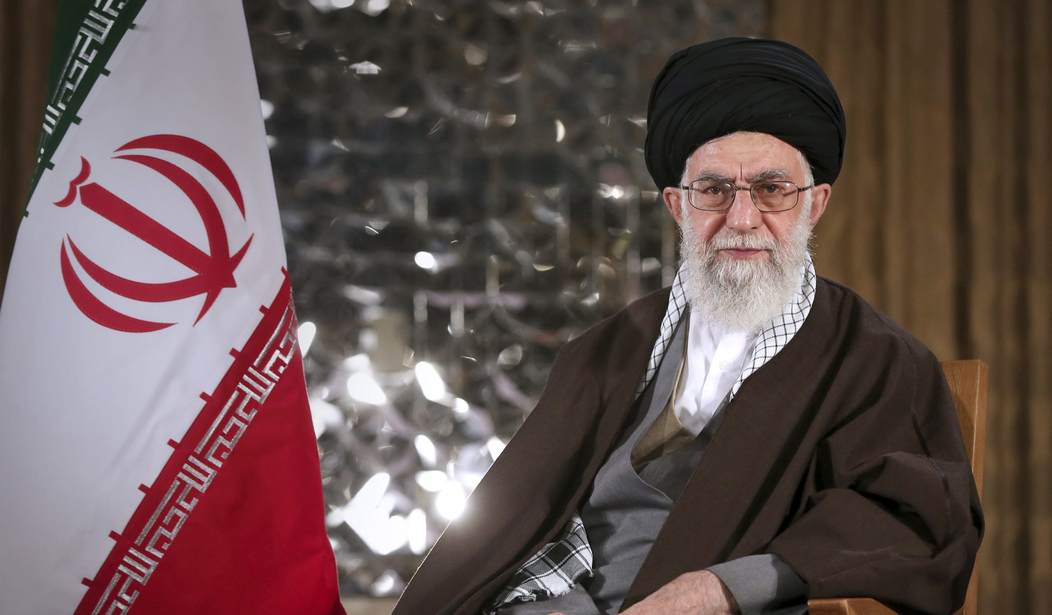A top congressional opponent of Boeing’s deal with Iran said he met with corporate officials who told him that they were forging ahead with the agreement because a French company was doing it as well.
“I was briefed by their some of their Washington people that came in to see me about a month ago or so. One of their arguments was, well, Airbus is doing it… French are doing it. That is great. When does history exonerate somebody that said, you know what, the other guy was doing it, so we decided to do it?” Rep. Pete Roskam (R-Ill.) told Fox.
The details are still just coming from the Iran side, with Boeing simply telling the Associated Press that the company signed the pact “under authorizations from the U.S. government following a determination that Iran had met its obligations under the nuclear accord reached last summer.”
IranAir said in a statement this week that “an agreement was consequently signed after Boeing company representatives paid several official visits to Iran and held effective talks with IranAir official… if both sides could obtain proper permissions from their governments IranAir will hopefully be able to purchase aircraft.” The state-owned carrier expressed interest in the “new generation” of Boeing 737s and 777s.
Roskam, along with House Financial Services Committee Chairman Jeb Hensarling (R-Texas), asked Boeing president Dennis A. Muilenburg in a letter last week how the company can even ensure that its planes will not be used to further terrorist activity.
“Iran’s commercial aviation sector is deeply involved in supporting hostile actors,” Reps. Pete Roskam (R-Ill.) and Jeb Hensarling (R-Texas) wrote. “The Islamic Revolutionary Guard Corps (IRGC) systematically uses commercial aircraft to transport troops, weapons, military-related parts, rockets, and missiles to hostile actors around the world, including, but not limited to, Hezbollah, Hamas, Islamic Jihad, the Houthi Rebels in Yemen, and the Bashar Al-Assad Regime in Syria.”
“These terrorist groups and rogue regimes have American blood on their hands. Your potential customers do as well.”
Roskam and Hensarling asked Boeing to answer a number of questions about the dealmaking process and the agreement by July 1.
Roskam stressed on Fox that “these are fungible products — in other words, we are not talking about selling baby formula to the Iranians.”
“We are talking about selling commercial aircraft — which Boeing boasts, by the way, of their capacity to be interchangeable with military aircraft — but regardless of Boeing’s boasts, they have got the capacity to put rockets on them, put personnel on them, and you give these things to the Iranians and they have not walked away,” he said.
“That is the Iranians, from their commitment to being the world’s largest state sponsor of terror. So it begs the question, why is an iconic American company doing business and being complicit with the world’s largest state sponsor of terror? It’s outrageous.”
Roskam has offered amendments that will come up for floor debate “to prohibit the Department of Treasury from licensing this deal and from actively participating in the financing of this deal.”
“Boeing is trying to kind of pull a fast one. There are some other tax consequences in terms of what is known as dollarization of these issues. So, the bottom line is we can put a lot of pressure. We can try and create a lot of attention here. And at the very least, Boeing, you don’t get to be iconic American company and do business with the world’s largest state sponsor of terror,” he said.
President Obama, he noted, can “absolutely do something to stop it — he can say we are not going to license this deal, done, over.”
But the administration has already sent friendly signals toward the deal as being a healthy byproduct of the P5+1 nuclear deal.
“The concern that the Iranian government had is that their fleet of commercial aircraft, passenger aircraft, was aging dramatically and it was contributing to a rather unsafe situation inside of Iran. And I think this is a good example of how their desire to reengage with the international community did give the United States and the international community leverage to get Iran to make a bunch of serious commitments as it relates to their nuclear program,” White House press secretary Josh Earnest told reporters Wednesday.
“So this is a benefit that Iran got, only after we were able to definitively confirm independently that they had abided by the terms of the deal and that they had essentially rendered harmless their plutonium reactor, that they had disconnected thousands of centrifuges, that they had reduced their highly enriched uranium stockpile by 98 percent,” Earnest said. “Only after we had confirmed that they’d taken all those steps, and only after we have seen them continue to cooperate with independent verification systems did we allow this kind of thing to move forward.”
“What it doesn’t change, however, are the sanctions that remain in place against Iran because of Iran’s ballistic missile program. And those sanctions are in place. They are occasionally toughened based on the discretion of the Treasury Department, and they are rigorously enforced. And they will continue to be as long as Iran continues to flout their international obligations when it comes to their ballistic missile program.”
Roskam noted that Iran is “desperate for the planes.”
“Part of the deal, I think, during the nuclear thing was that the Iranians got IranAir off the terror watch list,” the congressman said. “But here’s the problem. Mahan Air, also an Iranian airline, retains itself on the terror watch list. So, here’s how this works, these planes are fungible they move around. And mark my words, if this happens, Boeing’s name will forever be linked with terror.”









Join the conversation as a VIP Member